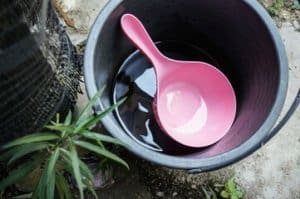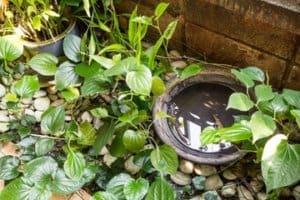The best way to avoid getting sick from a mosquito-borne illness is to prevent mosquito bites. Follow these tips to reduce your risk from mosquitoes!
- Avoid outside activity at dawn and dusk as much as possible during mosquito season (May to October). This is particularly important for the elderly and small children.
- Wear long sleeves and pants along with shoes and socks to reduce the amount of exposed skin
- Use an EPA-registered insect repellent with DEET, Oil of lemon or eucalyptus (OLE), Picaridin, IR3535, Para-methane-diol (PMD), or 2-undecanone. Always follow the label directions!
- Place mosquito netting over strollers and infant carriers during mosquito season
- Make sure all doors and windows in your home have properly fitted screens. Repair or replace any screens that have tears or holes in them.
- Eliminate potential mosquito breeding areas around your home by regularly checking for anything that can hold standing water for more than a few days like tires, buckets, jars, plant pots, etc. Dump standing water when you find it and be sure to change water frequently in things like pet bowls and bird baths.
Mosquito Control Information
- American Mosquito Control Association (AMCA)
- CDC – Mosquitoes
- EPA – Mosquito Control
- National Pesticide Information Center – Choosing and Using Insect Repellents
Aedes Mosquitoes
- CDC – Aedes aegypti Life Cycle
- CDC – Data and Statistics on Dengue in the United States
- CDC – Dengue Current Year Data
- CDC – Life Cycle of Aedes Mosquitoes
- CDC – Potential Range of Aedes Mosquitoes
- Four Corners – An invasive tropical mosquito Aedes aegypti has been identified in York
- JCVCD – 2024 Invasive Aedes Detection
- PBS – This Dangerous Mosquito Lays Her Armored Eggs in Your House
Mosquito-Borne Illness Information


